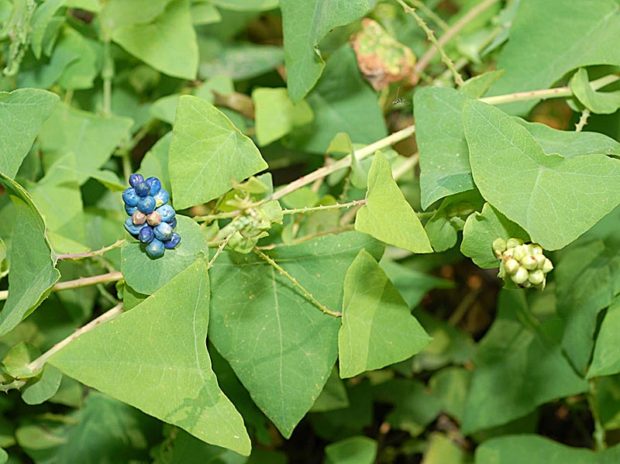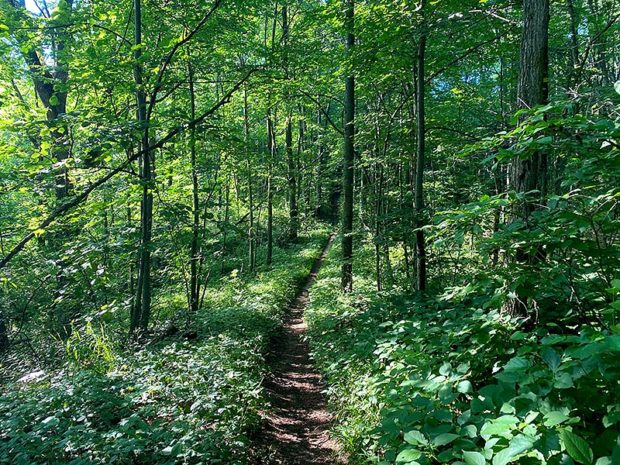
Although it doesn’t spread as fast as its name suggests, invasive plant mile-a-minute weed has made its way to Michigan. This fast-growing, invasive vine recently was verified at the Whitehouse Nature Center at Albion College in Calhoun County. The plant is native to India, Asia and the Philippine Islands, and can cause harm to Christmas tree farms, reforestation projects and restoration areas by smothering young plants and trees under its dense growth.
Mile-a-minute weed is identified by its triangular leaves, spikes of pea-sized blue fruits, and recurved barbs lining the stems and leaf margins. Unusual circular leaves called ocreae clasp the stem beneath each fruit spike.
It can grow up to 25 feet in six to eight weeks. Dense, prickly thickets overtake native vegetation. Seeds may survive in the soil for up to six years.
Each fruit contains a single seed, and vines can produce up to 3,500 seeds per year. Fruits are eaten by birds, deer and small mammals, which can spread seeds miles away from the original plant.
Learn more here.
Related: Janet’s Journal – Celebrate and respect the diversity of native plants

